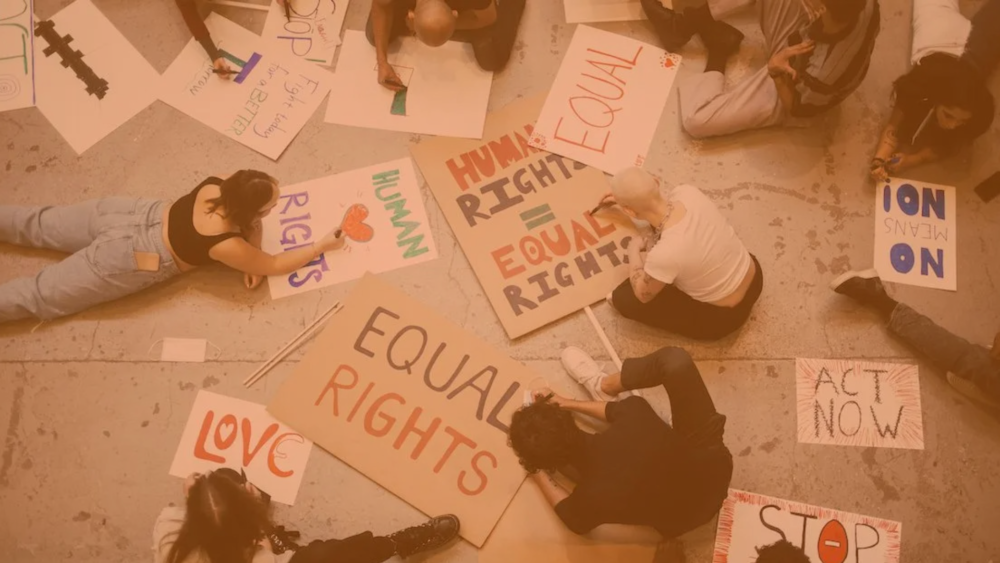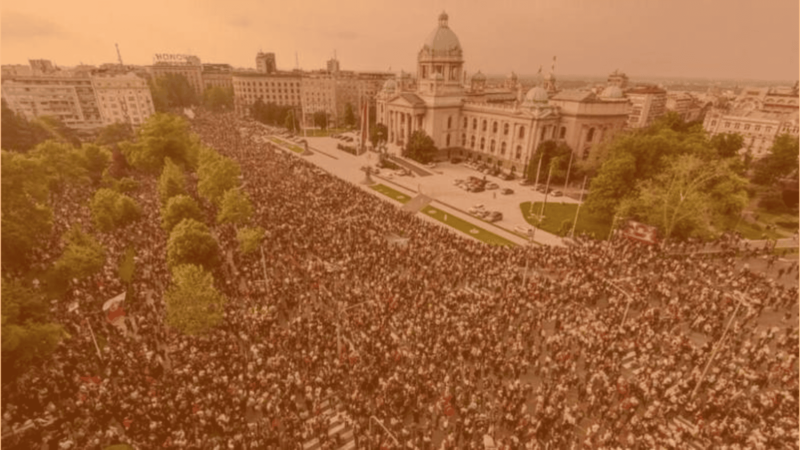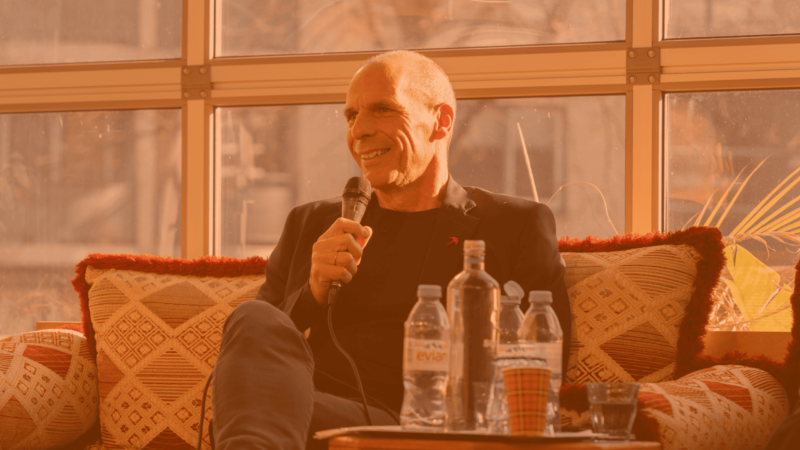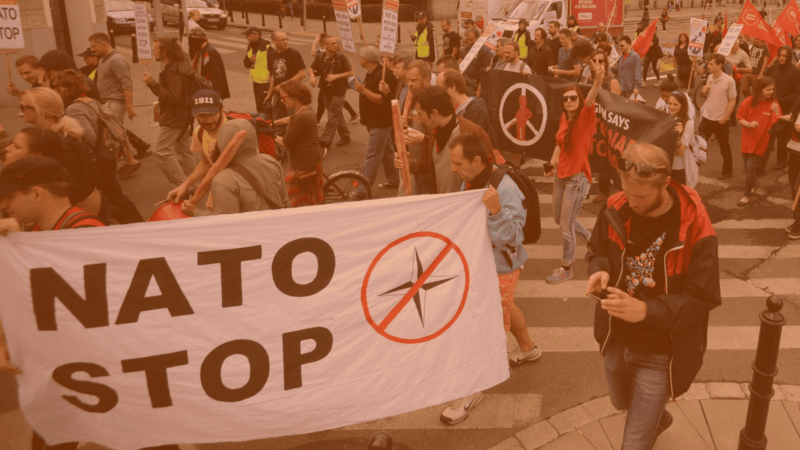At the end of April, both Amnesty International and the United States government published their yearly report on human rights in the world. A comparison between both reports is impossible to make here due to their sheer length (418 and over 1,000 respectively) and too many similarities that all the same do hide differences. It deserves serious research.
It is difficult to underestimate the importance of these reports. The Universal Declaration on Human Rights (UDHR) with its two compacts – civil and political rights on the one hand, economic, social and cultural rights on the other – is the most important international agreement that we have. If respected and fulfilled, it allows all people to have a life in dignity. Furthermore, most world regions have their own charters – Latin America, Europe, Africa, Asia. The European Union has its own Charter on Fundamental Rights to which its treaties refer. The UDHR is completed with other treaties concerning the rights of children, women, indigenous people and so on.
Also, in all of the world’s regions, civil society organisations monitor the correct implementation of all treaties and charters.
Does it mean everything goes smoothly? Certainly not.
The most significant problem obviously is the political use and abuse of human rights. All too often, countries are accused of human rights violations when they do not comply with the rules and wishes of hegemonic powers. We all remember how the Soviet Union and the Eastern European socialist countries were constantly accused during the Cold War. The answer of the Soviet Union often consisted of pictures of homeless people in New York.
The latest US report on human rights is another piece of evidence on how human rights are used politically. US Secretary of State Antony Blinken made a long speech on human rights violations in Iran, Sudan, Venezuela, Cuba, Nicaragua and Russia, yet not a word on countries such as Saudi Arabia, let alone Israel.
At that same moment, a genocide was going on in Gaza – hundreds of people were being killed, mainly women and children. That did not seem to be a problem.
Blinken also spoke about the freedom of speech and assembly, at exactly the same moment that student sit-ins were broken up at Columbia University and other universities in the United States.
You cannot but wonder: how is this possible? Does he believe in the words he is saying? Or is this conscious disinformation? How can you condemn political prisoners in Nicaragua and keep quiet on beheadings in Saudi Arabia?
Most facts reported on in the report are probably correct. The problem is with the arbitrariness of what is reported and what is not.
Take the example of Mexico. President Andrés Manuel López Obrador was furious about the 57 pages devoted to his country. He called it an unacceptable intervention in the interior affairs of Mexico.
It is true that several journalists have been killed in Mexico, but is there any evidence that public authorities are somehow involved in this? It is true that Lopez Obrador has made negative declarations about the judiciary, but that was after tens of arrested people had been freed in the case of the 43 disappeared students. All in all, freedom of speech is being respected in Mexico, the report says. But it adds that the government has a large advertising budget for newspapers and so it has the power to exert pressure.
There is more to say about this report.
What is the moral authority of the US to make those statements? A country that cannot get drug trafficking and consumption under control and where tens of thousands of people die of overdoses every year. A country with countless homeless people in tents along major avenues. A country with the highest percentage of prisoners in the world relative to its population. A country that sells the most weapons of all, which can be used to commit mass murder in other countries, such as Mexico, which are then labelled as human rights violations. No other country has been involved in as many wars in the last century as the US. Every day at the border with Mexico, the rights of asylum seekers are violated. For 20 years now, prisoners have been held illegally at Guantanamo, not even its own territory, people who have never been brought before a court, who have never been convicted.
We treat all countries the same way, Blinken said, whether they are allies or not. But the US systematically vetoes all resolutions condemning Israel for denying humanitarian aid in Gaza. Even for war crimes, the US looks the other way.
Of course, the US is not alone in this hypocritical behaviour. In Argentina, president Javier Milei is violating the human rights of his people on a massive scale. Poverty there has risen to about 60 percent. But the IMF is cheering because there is finally, for the first time in many years, a budget surplus.
In Italy, an eminent writer and historian of fascism was banned from delivering a message in the public media. Anti-fascism – in the country where the term and the movement originated, the concept has even become an official taboo.
In Britain, the government wants to take ‘illegal migrants’ to Rwanda and if the European Court on Human Rights does not agree, the UK threatens to leave the organisation.
In France, student sit-ins at the Sorbonne and Sciences Po are being cleared by the police. An eminent scholar from the US, Judith Butler, has not been allowed to speak.
In Germany, it was Nancy Fraser who was banned and DiEM25 co-founder Yanis Varoufakis is not allowed to enter the country anymore.
It is clear that the two ongoing wars, in Ukraine and Gaza, are at the root of this very sad state of affairs with human rights. But everyone can see how double standards are being applied: sanctions for Russia, support and weapons for Israel.
And one wonders if that is the best way to promote peace. Killing people, women and children, on the one hand, and banning free speech for those who protest? According to Reporters Without Borders, freedom of speech in Europe is deteriorating and several countries are becoming ‘problematic’.
Peace, Jeremy Corbyn said recently at a European meeting in Brussels, is not the ability to eliminate your enemy, peace is water, education and healthcare. I would add: and the full implementation of human rights, everywhere.
We live in anxious times. There is the threat of climate change and there are ongoing wars. Some say we are ‘sleepwalking’ towards a third world war, but nothing could be further away from the truth. It is with wide awake eyes that an escalation is underway in the conflict between NATO, Ukraine and Russia. It is with wide awake eyes that statements are being made by high-level politicians that should make us tremble with fear.
Those who follow the international media see and read how step-by-step the taboo on the use of nuclear weapons use is being loosened. In the past, nuclear weapons were our ‘deterrent’ that maintained a ‘stable balance of power’. With the end of the Cold War and the development – with weapons programmes – of China, that house of cards has been shaken. Disarmament treaties have been denounced one by one. Every week, one reads articles about how many hundreds of millions of deaths a nuclear weapons attack would cost in the US, in Russia or in Asia. In the big think-tanks, arithmetic has begun, and strategic plans are being drawn up.
We are at a turning point. The post-war multilateral world order no longer exists. The UN Charter that was supposed to ensure peace has never been fully implemented, especially in terms of armed intervention. Anyone going over the list of Western military interventions can still hardly believe that NATO is only looking after our security. According to the Tricontinental Institute, in 2022 alone, there were 317 military interventions by Western countries in countries of the South. Millions were killed in countries like Afghanistan, Iraq and Syria. Since the end of the Cold War, the number of NATO member states has doubled. The US has more than 900 military bases worldwide.
Is it then unfeasible and over-ambitious to ask for a serious political debate on our security? To defend and promote human rights?
Anyone who is willing to look at the socio-economic problems of the European Union immediately sees what difficult decisions need to be taken. If it wants to honour the ‘NATO commitments’ and spend 2 percent on ‘defence’ while at the same time ‘putting our budgets in order’, heavy cuts will inevitably follow for social policies. And yes, people do want security, human security. The cost of living is rising by the day. Thousands are homeless and the housing crisis is a reality. Waiting lists in healthcare are emerging. Child care and elderly care are under-funded. Poverty is not reduced and inequality is rising. Do we really need more weapons?
What are we waiting for to implement a security policy along the lines Jeremy Corbyn indicated? To work towards ‘human security’ as the UN suggested years ago? To put an end to gun-toting and think of some form of neutrality or non-alignment and peaceful coexistence? As the preamble of the Constitution of the International Labour Organisation already stated in 1919, ‘lasting peace is not possible without social justice’. It is a political choice.
Do you want to be informed of DiEM25's actions? Sign up here















